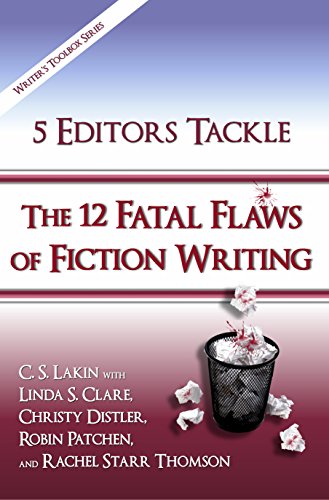I was recently interviewed by my client and good friend Lindsay Buroker about beta reading on her Youtube channel. In the interview, I mentioned that I had some writing books to recommend. One of the biggest issues I've encountered in books on writing is that they tend to be focused on the art of writing and less so on practical advice. I'm from the Upper Midwest; I love practical. These are all books that I think offer helpful, practical advice for anyone who writes fiction, from beginners to experienced writers. I've recommended them all to clients previously to positive response. Rachel Aaron's may even be useful for nonfiction writers who need help organizing their thoughts before writing.
A proviso before reading these books: you shouldn't take this list as an opportunity to be mean to yourself. Friends, treat yourself and your writing with love. When you're editing your writing, please give yourself the same feedback in the same way you would another person in a writing workshop. Be nice, be constructive, don't call yourself names. Adopt a growth perspective, not a punishment perspective. It's really easy to fall into the trap of negative thinking, but negative thinking hinders progress and growth. If you start being mean to yourself while writing or editing, it's OK to step away for a few minutes and get in a more positive frame of mind. Beating yourself up just makes you feel bad and doesn't get you anywhere.
5 Editors Tackle the 12 Fatal Flaws of Fiction Writing by C. S. Lakin, Linda S. Clare, Christy Distler, Robin Patchen, and Rachel Starr Thomson
This is hands down one of the best writing books I've ever encountered. It contains easily digestible direction for improving writing in twelve areas: overwriting, where to begin the story, weak sentence construction, backstory, point of view, showing not telling, pacing/tension, dialogue construction/usage, underwriting, use of description, adverbs/weasel words, and writing mechanics. Everyone struggles with at least one of these in their rough drafts. Each editor has written an essay about how to overcome these flaws, with before and after examples. With five different perspectives on each topic, you're bound to find something that will connect with you. (If you're reading this and have no idea what overwriting or underwriting is, please buy this book and read those sections. The explanations are spot on.)
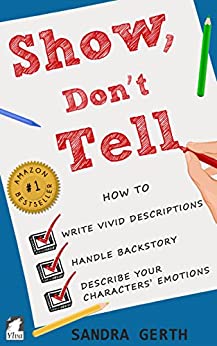
Show, Don't Tell: How to write vivid descriptions, handle backstory, and describe your characters' emotions by Sandra Gerth
"Show, don't tell!" reads every list of writing advice ever. It gets said so often without explanation that many people struggle to implement it in their own writing. In this short book, Sandra Gerth explains concisely the whys and hows of show, don't tell. Even if you think you've got this one mastered, grab this book and review it. You may find tips that help you make important moments in your novel even more powerful. And right now, it's free!
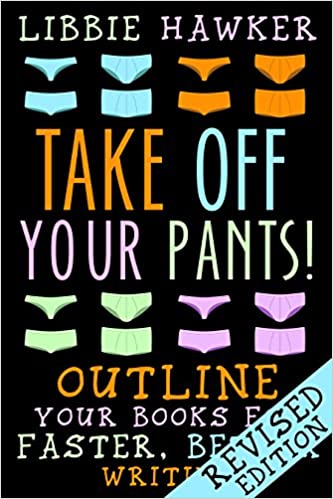
Take Off Your Pants!: Outline your books for faster, better writing by Libbie Hawker
Libbie Hawker, bestselling author in multiple genres, describes her outlining process in this book. She believes that all stories flow from character, and you know what? She's right! You can have a plot full of adventure and excitement, but if your hero has no arc, then the story will be dull as a dishwater. If you ever get feedback that it feels like your plot is moving your characters or your characters lack motivation, this is the book for you. If you struggle with your plots at all, this is the book for you. The great thing about this one is that it can work for you whether you're a pantser or a plotser; Hawker's method offers flexibility, so you shouldn't feel trapped or creatively stymied by the method.
Hawker draws heavily from John Truby's The Anatomy of Story, but has refined the process to make it better suited for reading, rather than screenwriting.
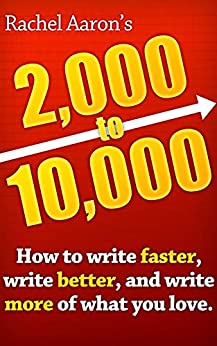
2k to 10k: Writing Faster, Writing Better, and Writing More of What You Love by Rachel Aaron
Part plotting book and part productivity advice, this book describes Rachel Aaron's journey from writing two thousand words a day to ten thousand words a day. Her goals don't need to be your goals, but if you struggle with getting words out of your head and onto the page, this could be the book for you. Aaron essentially takes the concept of mise en place (everything in its place) from cooking and applies it to writing. Instead of figuring out what needs to happen in your story during your writing time, she encourages figuring it out beforehand so you can spend your writing time actually writing. It's all really practicable, actionable advice. I highly value books which give you concrete advice that you can act on, and Aaron's book is it. It's pithy, it's practical, it's useful. You can see it demonstrated in her published books. Love it.
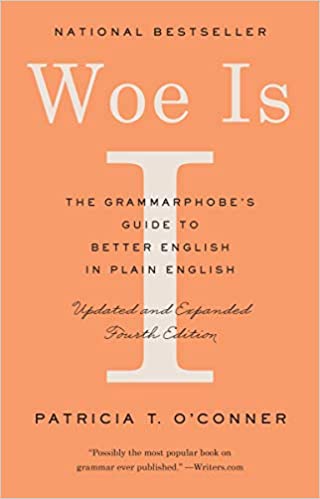
Woe Is I: The Grammarphobe's Guide to Better English in Plain English by Patricia T. O'Conner
Rather than a book on craft or plotting, this is a book about grammar and punctuation. This one should be accessible even if you didn't learn grammar in school or if it's been decades since your last class. Let's face it, sometimes the Chicago Manual of Style is too technical, and you need a fast answer.
This is the end of my list, but I'm always looking for more recommendations. If you have any writing books that you've found helpful, feel free to drop a comment and let me know.
